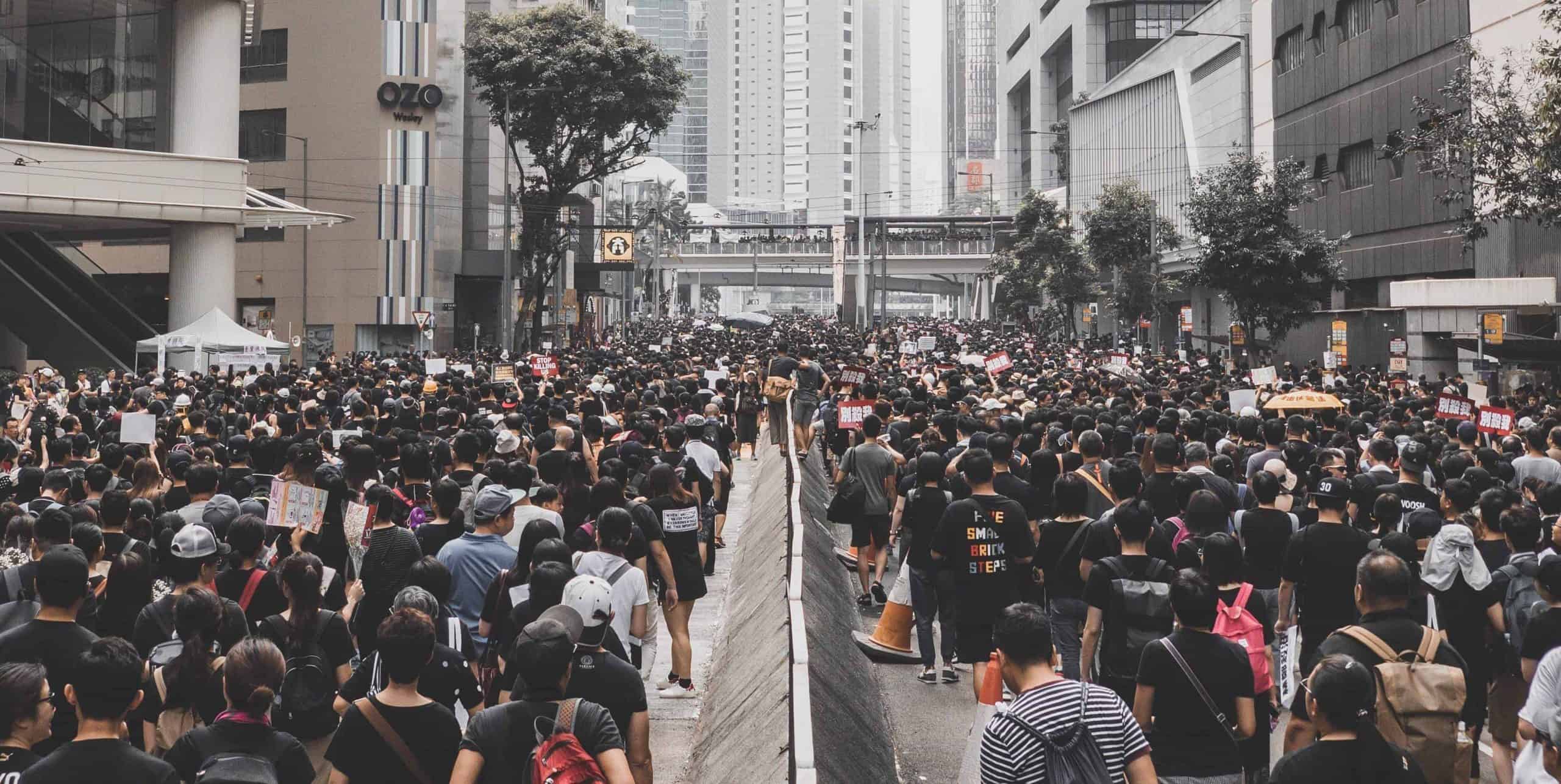Hong Kong – The fallout from a controversial extradition bill proposed by Hong Kong’s pro-China Chief Executive Carrie Lam has reportedly triggered capital flight and Bitcoin trading at a premium in the city.
Massive demonstrations against the bill, including one that saw an estimated 2 million of Hong Kong’s 7.5 million people march on Sunday, have rocked the semi-autonomous Chinese territory. According to financial advisers, bankers and lawyers familiar with such transactions, some wealthy residents are already moving their money.
“It’s started. We’re hearing others are doing it, too, but no-one is going to go on parade that they are leaving,” one adviser reportedly told Reuters. “Singapore is the favored destination.”
One tycoon, who considers himself potentially politically exposed, has started shifting more than US$100 million from a local Citibank account to a Citibank account in Singapore, an adviser involved in the transaction said.
The head of private banking operations at an another international bank in Hong Kong said his clients have also been moving money out of Hong Kong to Singapore.
“These aren’t mainland Chinese clients who might be politically exposed, but wealthy Hong Kong clients,” the banker said. “The situation in Hong Kong is out of control.”
Bitcoin is also proving a popular safe haven. Hong Kong crypto exchange Tidebit shows that the price of BTC is roughly $160 higher than the global average.
Why the alarm?
Legal experts say in addition to allowing China to request the extradition of anyone in Hong Kong accused of a crime on the Mainland, it would also be possible for China to request Hong Kong courts freeze and confiscate financial assets. Bitcoin is difficult for authorities to trace.
The extradition bill was prompted by the murder in Taiwan of a Hong Kong woman by her Hong Kong boyfriend. Since Hong Kong and Taiwan don’t have an extradition treaty, he can not be returned to Taiwan to face trial. The Hong Kong government says the bill seeks to simplify case-by-case extraditions to jurisdictions, including China, beyond the 20 with which Hong Kong already has extradition treaties.
However, the Hong Kong government ignored the warnings of legal experts who pointed out it would expose residents to deportation to jurisdictions like China with opaque justice systems.
China has a history of encroaching on political freedoms in Hong Kong guaranteed by the laws governing the former British colony’s 1997 return to Chinese rule. In 2015, China reportedly kidnapped five Hong Kong booksellers selling publications about Chinese leaders the Communist Party does not like.
Last year, a Hong Kong man involved in a property dispute in China was arrested at a Hong Kong train station where Mainland law applies because travelers clear Chinese customs before getting on the train. His detention came just days after the station opened. Hong Kong government officials had dismissed the warnings of legal experts who said detention at the station by Chinese police was possible.
Hong Kong and Singapore compete fiercely to be considered Asia’s premier financial center, according to a report from Credit Suisse last year.
The riches held by Hong Kong’s tycoons have until now made the territory the larger base for private wealth, boasting 853 individuals worth more than US$100 million — just more than double the number in Singapore.




